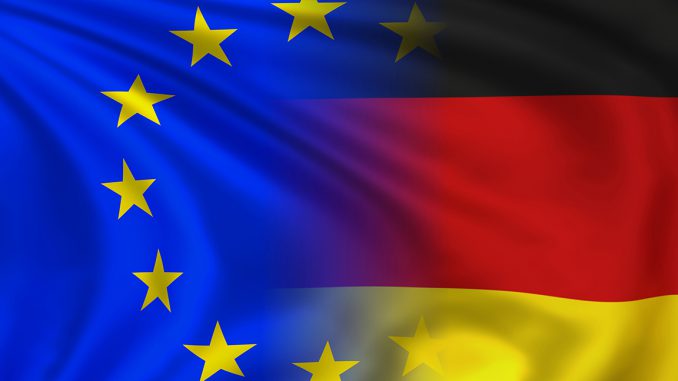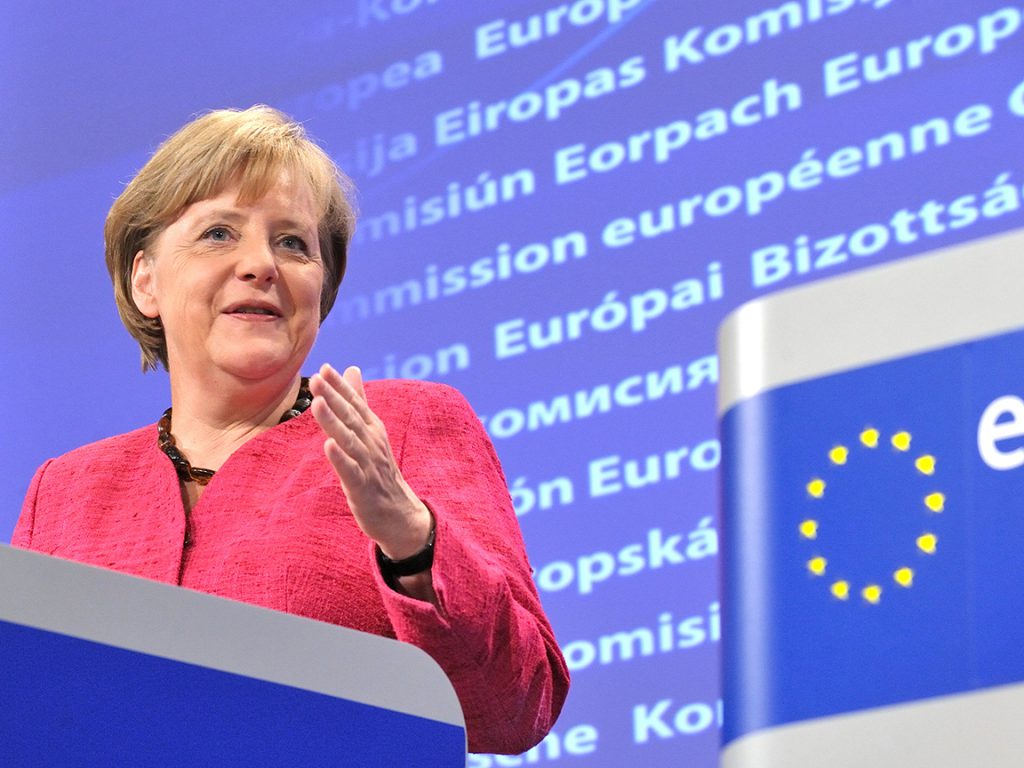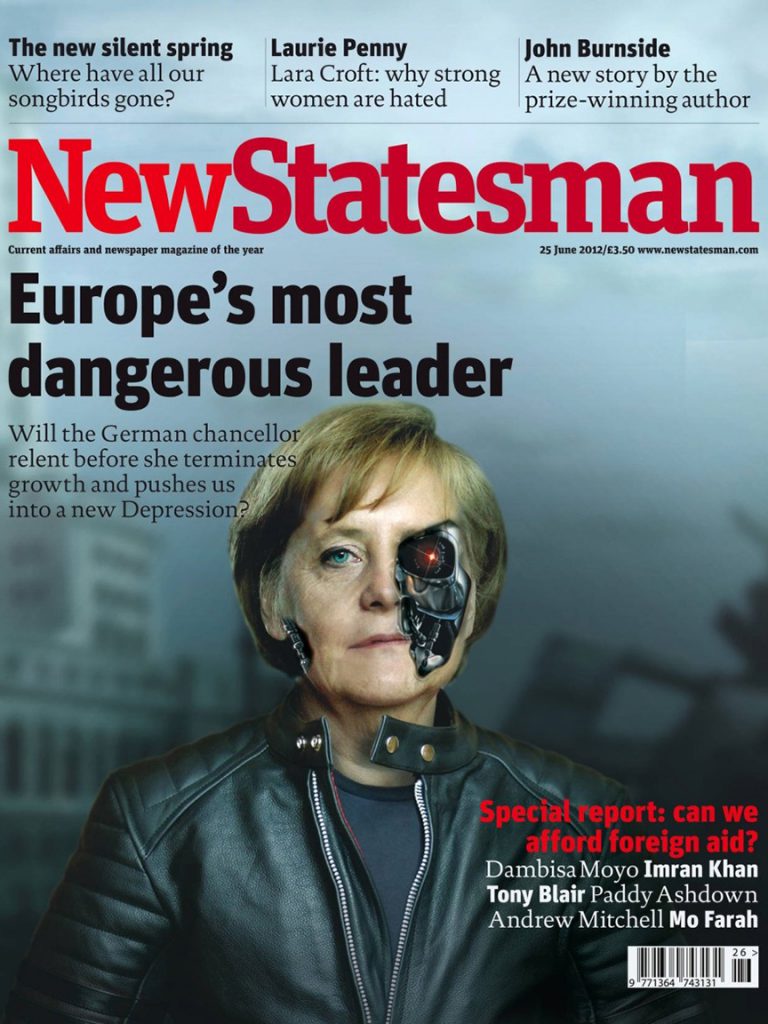
MBS hosted the post-graduate workshop titled “Europe and the world” within the DBA program. Pressing issues around the European Union were the subjects of a scientific, profoundly fact-based examination of imminent challenges. One of the topics the postgraduates discussed was the potential leading role of Germany within the EU.
Since the post-war period, and in a prolonged process, the EU has been formed as a state-like entity to which the national states have transferred their own competences to supranational institutions: To the European Commission, the European Parliament, the European Court of Justice. In the beginning, the foremost goal was gaining security for Europe by putting the resources required for war (coal, steel and nuclear energy) under the common administration of European governments. Finally, economic and political advantages were achieved by further integration steps (EEC, EMS, EU).
In a series of agreements, the last one ratified in Lisbon in 2009, the member states agreed on the EU’s competence for the customs union, the customs policy for the internal market with its 4 basic freedoms of persons, goods, services and capital, and a joint and coordinated trade policy and they committed themselves to further integrating into the EU.
The EU as an economic and monetary union
In addition, the Maastricht Agreement of 1992 established an economic and monetary union, in which, however, only 19 of the currently 28 EU members are participating: Great Britain and Denmark declined; the other states are awaiting participation.
28 states agreed to coordinate their tax and financial policies in the economic unification. Further consent regarding joint approaches were outlined in earlier contracts, e.g. for a joint agricultural and structure policy, foreign and safety policies and other issues.
At the same time, the national states have reserved essential influence for themselves. In the European Council, the European heads of states and governments determine the guidelines for the EU, in most cases in consensus and/or unanimously. The legislation of the EU, in addition, cannot ignore the national governments.
The EU Council of Ministers, in which the national department ministers have the voting right corresponding to the subject matter of the polls, must pass the laws in conjunction with the Parliament. The European Commission, on the other hand, lacks large parts of the competencies of a national government, and above all does not have sanctioning power in the territories of a member state.
Finally, the finance ministers of the countries with joint currency hold their discussions within the so-called Eurogroup. The weight of the inter-state committees is still clearly higher than that of the supranational Union.
Does the EU need leadership?
While fighting the financial crisis, essential decisions were made in exactly the way Germany had demanded. As the economically strongest member state, the country assumed and occupied the leading role. There were a number of occasions to practically expand on this leadership role subsequently: In the Libya crisis, Germany showed restraint and was harshly criticized, in the crisis in the Ukraine, however, Germany exerted sustainable influence. In the refugee crisis, the German government wanted to set a good example, but so far hardly found any imitators.
The fact that national governments have repeatedly ignored the EU rules and joint decisions of the heads of states and governments in particular renders considerations about a country with a leadership role within the EU plausible. In addition, there are some disagreements concerning competencies and unclear role assignments between the institutions of the EU, creating the need for improvement of the inner organization and co-operation.
Why Germany?
A leadership role among countries means exerting power; it implies taking action as the hegemon. Power, in turn, requires resources, clear goals of shaping and the will to assert oneself. In the 70 years after WWII, Germany has gained a high reputation in the world, a soft power that should not be underestimated.
Its largest population and strongest economy among the member states exerts great attraction and also holds the potential for exerting military power. Germany is the central power within the geography of the EU, and consequently the country with the most neighbors. In the many years of Europe growing together, Germany has often enough renounced own interests to drive the ever closer union of the member states.
In the process, various German governments have always placed the highest importance on close cooperation with France. Europe would hardly accept as its hegemon a strong Germany with a robust determination to implement its ideas.
What would be the consequences of a German leadership?
Of course, the postgraduates saw an advantage in the fact that European decision-making processes could be clearly accelerated. More often than now, Europe would address the world with one voice, and it could achieve a more homogeneous outward appearance. This would allow the EU to make a stronger impression, which would make it more calculable as a partner or opponent, for example for the United States, for Russia and for China.
No doubt, the “recipes” of a German leadership might have a deterring effect on the other member states (savings policies, Agenda 2010) if applied throughout the EU without modification. This could release veritable centrifugal forces, affecting identification with the EU, and a growing number of member states might consider an exit of the European Union.
Europe’s experience with the two world wars and the crimes of Nazi Germany also mean that Germany’s behavior will not be looked at without reservations for quite some time. It is an easy game for national politicians to use anti-German resentments within domestic debates: All too quickly, the European press presents Angela Merkel in a Wehrmacht or SS uniform. What a hegemon does will always be looked at critically, but in the case of Germany, the distrust of many neighboring countries would be particularly strong.
The postgraduates clearly projected the economic consequences for Germany in a leadership position as negative, at least in the short term. The German republic’s political assertion to lead would be met with general distrust and probably result in advocacy and demands of more financial commitment.
A more homogenous growth and cohesion policy, after all, also requires increased investments. Financing such investments would be the easiest for a hegemon “in the black” in the federal household. It would certainly put more weight on Germany as the Union’s biggest net spender.
In addition, liability increases by a pan-Europe deposit protection system or the emission of so-called Eurobonds could not be excluded. Because a German leadership role in Europe would also lead to international obligations, strengthening the German military would become necessary. As we recently heard, Ursula von der Leyen, Germany’s Federal Minister of Defense, has claimed an additional 130 billion Euros for the defense budget for the next 15 years.
At the same time, the participants did not neglect the fact that Germany as an economic power really has a fragile position. More than 40 percent of the country’s gross national product is based on exports, of which only 50 percent are achieved with EU countries. As already could be observed during the financial crisis, distortions in the world economy or with specific important economic partners can quickly lead to severe setbacks in growth.
In view of the strong and complex economic interdependence of the EU countries, the hegemon’s weakness would also affect the rest of the EU. At present, the good state of the German economy, above all of the labor market, is causing a strong pull. A German recession, caused by an export decrease, would quickly lead to a decrease in imports and increase the general European unemployment.
Summary and conclusions
One conclusion of the postgraduate workshop was that the EU could indeed benefit from Germany assuming a stronger leadership responsibility. Above all, the financial investments for a joint policy would increase and a more cohesive outward appearance would probably be helpful for asserting joint interests.
Germany itself would have to face noticeable additional burdens. The image of Germans within Europe could also suffer. A prudent co-ordination of Germany’s course of action with France would therefore be recommended. However, there seems no alternative to Germany assuming more leadership power.
© Figure A. Merkel: European Comission
© Figure Cover NewStatesman: NewStatesman







